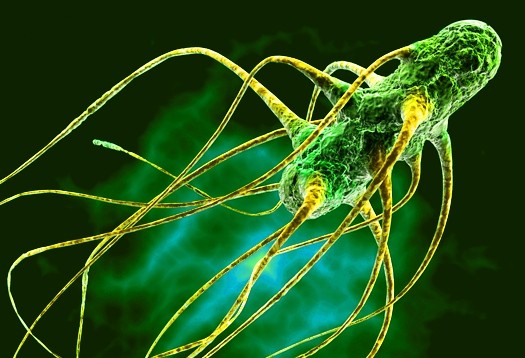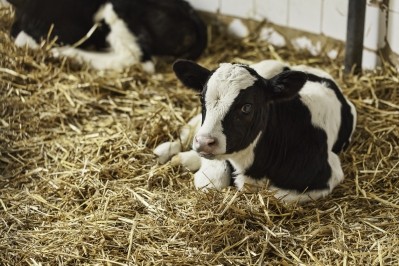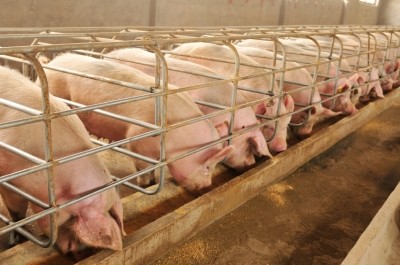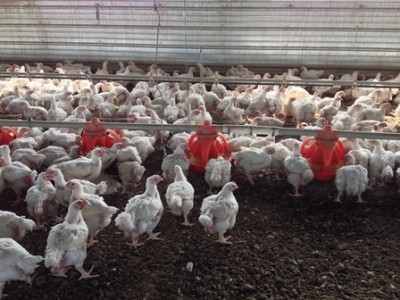Yeast cultures could play critical role in managing Salmonellosis in dairy calves

The authors of research, published in the August edition of Veterinary Microbiology, say the combination of two proprietary S. cerevisiae fermentation products (SCFP) helps prevent the negative effects of salmonellosis in pre-weaned dairy calves, while also boosting productivity.
The study was funded by yeast supplier, Diamond V, and the Institute of Physical Research and Technology at Iowa State University.
Salmonellosis is an insidious and potentially epidemic problem in pre-weaned dairy calves.
“Managing this disease, or any other diarrheal disease, is a financial burden to producers. Calf mortalities and medicinal treatments are overt costs of salmonellosis, while hidden costs include hampered weight gains and persistent intestinal colonization of the pathogen,” said the authors.
Managing salmonella in calves
The researchers said preventing Salmonella infections currently focuses on vaccine technology: “Unfortunately, this vaccine is only for cattle that are six months or older, thus pre-weaned calves are dependent upon colostral passive immunization from the vaccinated dam."
While bacterins have been tried, the authors said these are frequently unsuccessful because of the immunodominance of the Salmonella O-antigen and serovar specificity.
They noted that previous studies have shown that soluble components present in SCFPs enhance gut health and promote immune function, and when supplemented to the starter grain, SCFP improved rumen development, starter grain intake, and body weight gain of non-challenged calves.
“Because of these benefits associated with SCFP, we examined its anti-Salmonella effects when fed to pre-weaned dairy calves experimentally infected with Salmonella,” said the researchers.
They evaluated the anti-Salmonella effects of the yeast products when included in both milk replacer and starter grain.
The study
In a blinded study two to eight day-old calves were fed SCFP or an SCFP-free control for two weeks before and three weeks after the experimental challenge with Salmonella enterica serotype Typhimurium.
Following the challenge, calves were monitored for clinical signs and parameters associated with salmonellosis.
Calves were then euthanized and examined for rumen development and intestinal Salmonella colonization, said the researchers.
The outcome
They found that when compared to calves that received milk replacer and feed lacking SCFP, calves that were fed the yeast products had fewer bouts of diarrhea and fever.
The researchers observed that rumens from these calves were more developed.
Additionally, Salmonella intestinal colonization was reduced in SCFP-fed calves and Salmonella fecal shedding disappeared at an earlier stage in these calves, said the authors
“In summary, Salmonella-infected dairy calves were significantly less likely to exhibit clinical signs associated with salmonellosis when fed SCFP. Specifically, these calves were less likely to exhibit pyrexia and diarrhea, possibly as a direct result of diminished intestinal colonization by Salmonella. Ultimately, these protective effects augmented growth and improved rumen development in the calves infected with a serious enteric pathogen," said the scientists.
They say their results are consistent with a previous study in which feeding SCFP led to an improvement of gastrointestinal health in pre-weaned dairy calves naturally exposed to Salmonella.
But the mechanism of action remains unclear. “It may be related to the observed decrease in colonization by the pathogen and increase in rumen development," said the team.
The researchers say it is possible that “these benefits extend to protection from related enteric pathogens such as Escherichia coli since previously reported studies suggested SCFP could inhibit the growth of E. coli."
Journal: Veterinary Microbiology
Published online ahead of print: DOI: 10.1016/j.vetmic.2014.05.026
Title: Amelioration of salmonellosis in pre-weaned dairy calves fed Saccharomyces cerevisiae fermentation products in feed and milk replacer
Authors: M. T. Brewer, K. L. Anderson, I. Yoon, M. F. Scott, S. A. Carlson












